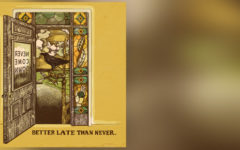
When you’ve soared to a high peak, topping that triumph can be a challenge in itself. In the case of the Hillbenders, a band that turned both rock and bluegrass on their respective ears with an otherwise unimaginable take on the Who’s Tommy, conceiving a formidable follow-up can be an especially daunting task indeed. What’s next, a back porch interpretation of Aqualung? Hardly. Instead, the group continues to plow forward by doing what’s made them distinctive since the beginning. That is, to veer to the left of tradition and tap into contemporary conceits in ways still relevant to their roots.
Consequently, this eponymous effort reaffirms this Ozarks outfit’s seminal stance, a sound that expands on bluegrass basics with melody, harmony, and the superb instrumental undertow that’s instilled them as fan favorites. And yet, while all the band members can claim credit for writing the majority of the material, they’re still amenable to offering outside interpretations here as well. Johnny Mullins, a heartland hero, gets his due with a suitably down home take on the lively Don’t Look At Me, while I’ve Got a Mind to Move On finds guitarist Jim Rea adapting some verse from a treatise by the late John Hartford. However the track that finds the band’s best example of their singular aplomb is a cover of MGMT’s Kids, a song that naturally seems especially afield when combined with any traditional trappings. No matter; in the Hillbenders’ hands, it becomes another emphatic example of skill and savvy.
Still, the prime reason for the Hillbenders’ craft and creativity is their determination to offer songs that make their melodies the element that’s of prime importance. While their instrumental abilities are unquestionably astute, the playing supports the songs and not the other way around. Guitar, bass, dobro, mandolin and banjo still supply the basics — with pedal steel newly added in a couple of cases — but it’s the beauty of a ballad like Daisy Chain, the collective energy of Planes, Trains & Automobiles and the criminal caper described in Wishing Well that ensure ample attention.
If The Hillbenders proves anything, it’s the fact that its namesake combo clearly has the credence and conviction needed to carry them to the top ranks of today’s progressive bluegrass pantheon. They no longer need to be solely dependent on their remarkable remake of Tommy to secure their stature, clearly an accomplishment in itself. Hence, consider them among the who’s who of today’s most able ensembles.







